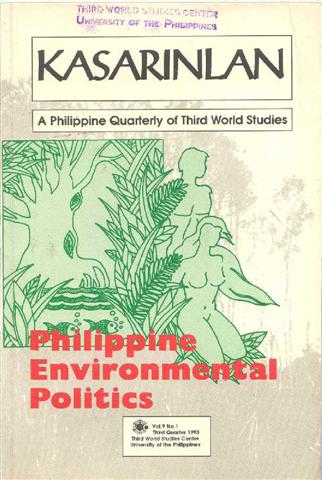Some Indigenous Cultural Traditions in the Phils.: Their Implications on Environemental Conservation
Abstract
The paper looks into cultural traditions of indigenous cultural communities (ICCs) that have implications on environmental preservation. The rapid deterioration of the environment makes it necessary to look at other strategies, such as indigenous cultural traditions, which are alternative methods to ensure successful environmental conservation programs. Data are heavily drawn from field work. Ancestral domain, human activity systems, and animism-shamanism are used to explain the ICCs’ worldview and their relationship to the environment. ICCs’ beliefs in the spirit world and observance of communal rituals and cultivation practices regulate consumption of natural resources and preserve attitudes such as respect for land, communal ownership, acquiring thorough knowledge of the immediate environment, sharing of resources, and observation of seasons and fallow periods. Notable examples highlight the relationship between cultural traditions and environmental preservation. A shift to the ICCs’ worldview from a profit-oriented worldview enables individuals and societies to be more conscious of the impact of their actions on the environment, and encourages them to cultivate a more respectful and caring relationship with the environment. However, the ICCs’ culture and traditions do not remain static. Major environmental, economic and societal changes as well as state and corporate interventions can challenge or replace these traditional ways of life and methods of environmental preservation. Yet, the author remained faithful in the strength and dynamism of indigenous cultural traditions to sustain the ICCs amidst overwhelming environmental challenges.
Published
2008-06-11
How to Cite
AGBAYANI, Rene.
Some Indigenous Cultural Traditions in the Phils.: Their Implications on Environemental Conservation.
Kasarinlan: Philippine Journal of Third World Studies, [S.l.], v. 9, n. 1, june 2008.
ISSN 2012-080X.
Available at: <https://journals.upd.edu.ph/index.php/kasarinlan/article/view/932>. Date accessed: 29 aug. 2025.
Section
Features
Keywords
indigenous cultural communities (ICCs), ancestral land, human activity systems, animism-shaminism, sacred sites, shifting cultivation
By submitting a manuscript, the authors agree that the exclusive rights to reproduce and distribute the article have been given to the Third World Studies Center.



